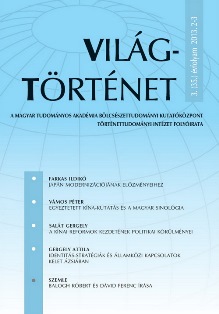Az „Igazság” a „Két bármi” ellen. A kínai reformok kezdetének politikai körülményei
“Practice” vs. “Two Whatevers”. The Political Context of Chinese Reforms
Author(s): Gergely SalátSubject(s): History
Published by: Magyar Tudományos Akadémia Bölcsészettudományi Kutatóközpont Történettudományi Intézet
Summary/Abstract: The two years period after the death of Mao Zedong (1976–1978) was crucial in the development of China. The appointed successor of Mao was Hua Guofeng, a newcomer in national politics; his main rival, Deng Xiaoping was, on the other hand, the most experienced and respected leader in the country. It was natural that the latter outmanoeuvred the former, but the process was long and full of contradictions. The huge respect for Mao and the need to maintain unity made all the parties avoid an open showdown. Meanwhile, the first steps of reform and opening were taken in this period. By the end of 1978, Deng Xiaoping and his allies took over the leadership of the party, and the way to the renewal of the country was opened. However, the results of the power struggle led to a strange situation in which formal positions and real power were separated, and party elders could always counterbalance Deng.
Journal: Világtörténet
- Issue Year: 2013
- Issue No: 2-3
- Page Range: 259-278
- Page Count: 20
- Language: Hungarian

